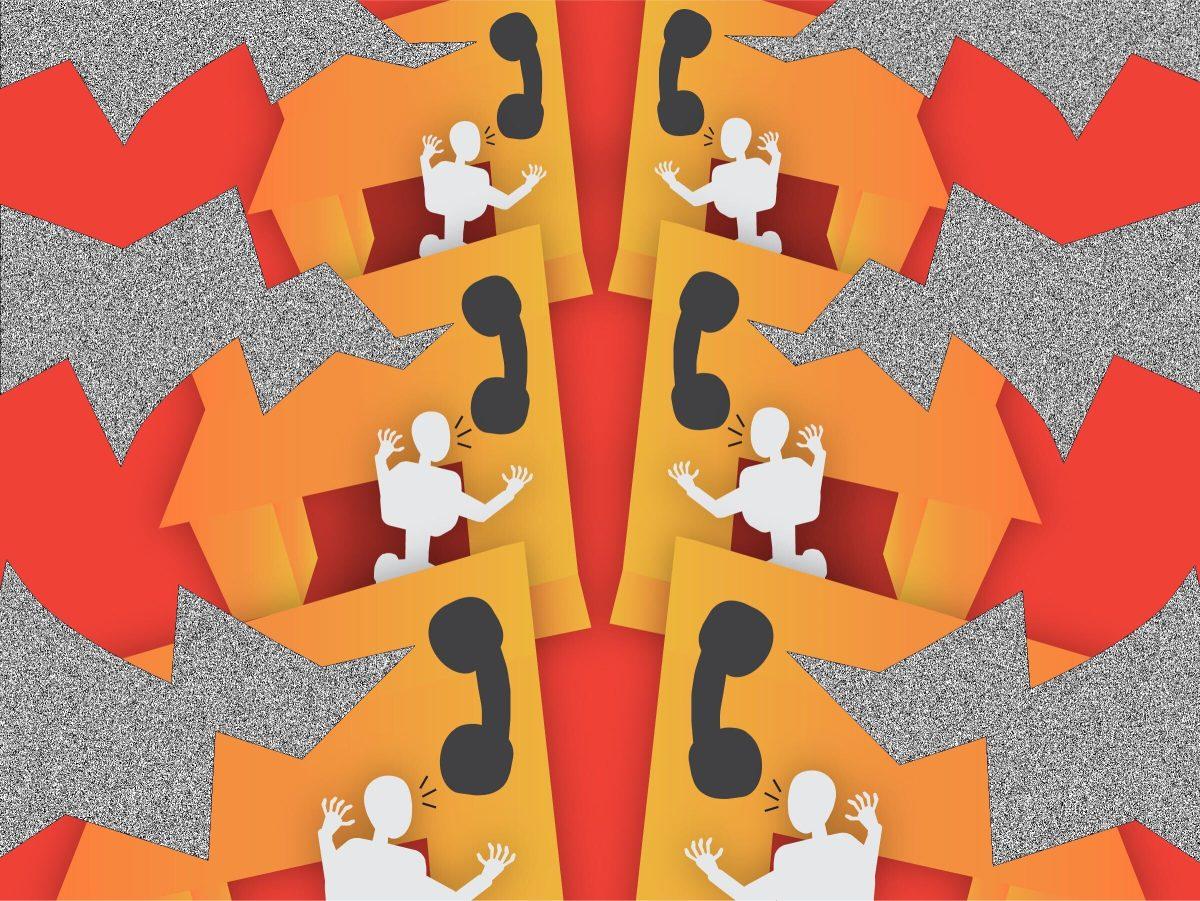I’m willing to bet you’re among the millions of Americans that have experienced customer service hell.
It starts out simple enough with a minor issue, complaint or even just a general question which prompts you to reluctantly contact customer service. You’re first greeted by a poor robotic audio recording that guides you through various prompts. After pressing one key after another your frustration level gradually builds. Following several aggravating minutes of pressing hashtags and pound signs, the robot then instructs you to wait to speak to a representative.
After an eternity of being forced to listen to music that sounds like someone threw silverware in a blender and decided to record it on an Android Galaxy flip phone, you hear the most eloquent sentence in the English language:
“Hello, my name is Bob. who do I have the pleasure of speaking with?”
Despite now being able to speak with an actual person, you still find yourself ready to rip the head off of the unfortunate soul of whoever is on the other end of the line. You know it’s not their fault, yet your rage persists and after a few scripted responses from Bob, you obtain the refund you were after all along.
Was it worth it? Probably not, and now you find yourself even less likely to contact customer service than you were prior to this ordeal. For a few decades, companies have been cheating the consumer through this soul-sucking process.
Of course, companies aren’t going to give out a refund or in-store credit to every customer that contacts them. However, what if I told you that the 74% of Americans who contacted customer service and reported having an issue regarding a product or service are starting to realize the effects of a larger issue.
The issue in question is that the majority of oligarchical behemoths left standing in the American market do not respect you. Call any major airline, car manufacturer, insurance company, media network, clothing brand, television, phone or internet provider as proof.
Let’s start with the obvious. It’s no secret that customer service is inefficient. Companies know this and that is precisely the reason they still employ these tactics. Companies with a larger market share couldn’t care less about individual customer experiences because it won’t come close to affecting their bottom line. Not to mention, the endless call queue weeds out the customers who truly want a refund from the Karens who are just looking to complain.
Complaints aren’t uncommon, however. In this modern age of planned obsolescence, consumers are tired of upcharges on products designed to have a limited shelf life — Apple we’re looking at you. Banned in certain countries, like France, this phenomenon is most easily observable in phone, clothing and appliance brands. No, you’re not going crazy, the same products you buy now actually used to be made better.
Also tied to this issue is consumerism culture, which has deceived many of us into thinking that we need an annual upgrade causing manufacturers to expedite the assembly process. The result is deficient products that break down after a number of months.
Companies know this, which is why between appearance, durability and manufacturability — the degree to which a product can be effectively made given its fixed design and cost — the durability factor is most likely what will suffer.
Someone should really let these companies know this is unacceptable. If only there was a way to voice these concerns. Alas, this brings us back to the infamous chatbots and elusive agents. If companies are resorting to cutting costs in developing their products, I can guarantee you they’ve also made some lay-offs. Which, you guessed it, means there aren’t as many people to answer the phones.
Customer service has been the canary in the coal mine all along. By removing physical people from almost every conceivable step in the product’s journey, from the assembly process to customer feedback, companies have opted to instead create artificial barriers between themselves and their customers.
The truth is your favorite brands don’t care about your feelings so long, as you are a repeat customer. These same companies then suffer by having no accountability or being unable to receive feedback from the very people their products are failing.
Want to know how they can stop getting away with it? Stop unconsciously adding items to your Amazon cart — I know we’re all guilty of it. Quit being tempted to buy products from brands like H&M, Zara and Shein whose business models are built around the philosophy of wear twice and toss. Buy clothing and furniture from local retail stores. Yes, it might cost more, but it will definitely last longer.
Lastly, hold on to products, like your iPhone, for as long as possible. Don’t be fooled into thinking that the new iPhone 15 is better because they keep throwing the word titanium around. If we want better products and to be able to talk to real people, we need to stop supporting companies every time they roll out their latest gilded product. Do you really need new clothing once a month or a new phone once a year? The Nokia 3310 is laughing at you.
The pros and cons are simple. You can either have an excess of poorly-made products and wait on hold for hours at a time because it didn’t turn out how you expected or start buying less and holding manufacturers accountable.
Benjamin Barnes is a telecommunication media studies senior and opinion columnist for The Battalion.
















